Filter by
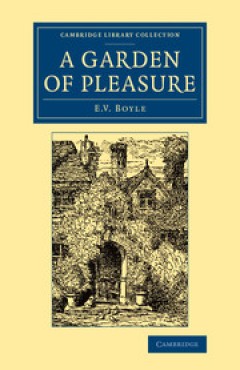
A Garden of Pleasure
Eleanor Vere Boyle (1825–1916), who re-created the gardens of Huntercombe Manor in Berkshire in the 1870s, was a talented artist as well as an author, illustrating both poetry and books for children. Coming from an aristocratic family, and in later life a friend of Queen Alexandra, she produced sketches and watercolours admired by Ruskin and Landseer, and Tennyson and Bulwer Lytton contribute…
- Edition
- -
- ISBN/ISSN
- 9781107741805
- Collation
- -
- Series Title
- Cambridge Library Collection - Botany and Horticulture
- Call Number
- -

Mergers and Alliances in Higher Education : International Practice and Emergi…
This volume casts light on mergers and alliances in higher education by examining developments of this type in different countries. It combines the direct experiences of those at the heart of such transformations, university leaders and senior officials responsible for higher education policy, with expert analysts of the systems concerned. Higher education in Europe faces a series of major c…
- Edition
- -
- ISBN/ISSN
- 9783319131344
- Collation
- XXI, 307 halaman
- Series Title
- -
- Call Number
- 370 MER

A Formula Book of English Official Historical Documents
This 1909 work forms a second supplement to Hall's Studies in English Official Historical Documents. It gives examples of a wide range of English ministerial and judicial documents from the ninth to the seventeenth centuries. These are arranged according to type and purpose, the majority in Latin. The intention is to assist the user of such archival materials, by familiarising them with the for…
- Edition
- Hubert Hall
- ISBN/ISSN
- 9780511696923
- Collation
- -
- Series Title
- Cambridge Library Collection - Medieval History
- Call Number
- -
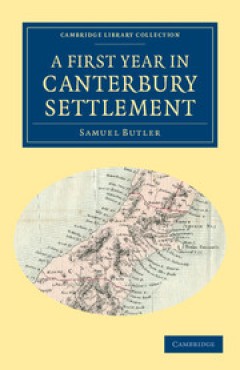
A First Year in Canterbury Settlement
Samuel Butler (1835–1902) became famous with his satirical Utopian novel Erewhon, based on his experiences as a sheep farmer in New Zealand and published, initially anonymously, in 1872. This earlier book, published in London in 1863 while he was still abroad, is a compilation of his letters home. Having obtained a degree in Classics from Cambridge, Butler had left England in 1859 with genero…
- Edition
- -
- ISBN/ISSN
- 9781139108218
- Collation
- -
- Series Title
- Cambridge Library Collection - History of Oceania
- Call Number
- -
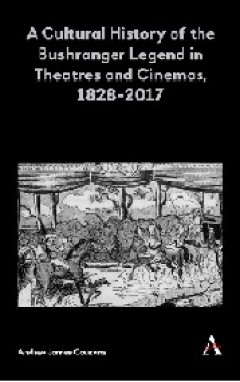
A Cultural History of the Bushranger Legend in Theatres and Cinemas, 1828–2017
'Outlaw Nation' is a multidisciplinary investigation into the history of cultural representations of the bushranger legend on the stage and screen, charting that history from its origins in colonial theatre works performed while bushrangers still roamed Australia's bush to contemporary Australian cinema. It considers the influences of industrial, political and social disruptions on these repres…
- Edition
- -
- ISBN/ISSN
- 9781783088928
- Collation
- -
- Series Title
- -
- Call Number
- -

A Financial History of the Netherlands
This book brings together the results of fresh scholarly research to present a unique overview of the financial history of the Netherlands from the sixteenth century onwards. The Netherlands has always occupied a role in international finance way out of proportion with its geographical size. Since the eighteenth century, the country has been one of the largest exporters of capital in the world.…
- Edition
- -
- ISBN/ISSN
- 9780511559754
- Collation
- -
- Series Title
- -
- Call Number
- -
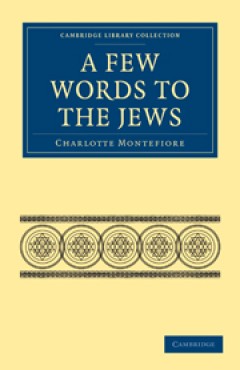
A Few Words to the Jews
Charlotte Montefiore (1818–1854) published A Few Words to the Jews anonymously in 1853. The volume is a collection of essays on Anglo-Jewish life, covering topics including the Sabbath, Jewish women, religious reform and practice, Jewish materialism, immortality, the idea of truth, and religious festivals. The essays, like Montefiore's collection of short stories, The Cheap Jewish Library, an…
- Edition
- -
- ISBN/ISSN
- 9780511751134
- Collation
- -
- Series Title
- Cambridge Library Collection - British and Irish History, 19th Century
- Call Number
- -
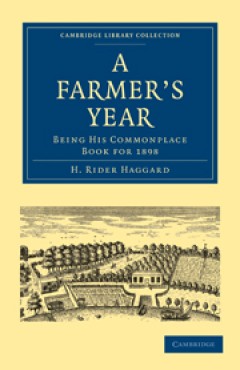
A Farmer's Year
H. Rider Haggard (1856–1925) is best known as the successful writer of adventure stories with exotic backgrounds such as King Solomon's Mines and She. However, he also served on a number of royal commissions, and in managing his wife's Norfolk estate became a recognised expert on agricultural matters. A Farmer's Year is his diary for 1898, recounting the work of the farm, month by month, toge…
- Edition
- -
- ISBN/ISSN
- 9780511792281
- Collation
- -
- Series Title
- Cambridge Library Collection - British and Irish History, 19th Century
- Call Number
- -
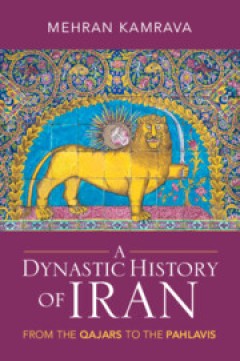
A Dynastic History of Iran From the Qajars to the Pahlavis
This rich dynastic study examines the political histories of Iran's last two monarchical dynasties, the Qajars and the Pahlavis. Tracing the rise and fall of both dynasties, Mehran Kamrava addresses essential questions about how and why they rose to power; what domestic and international forces impacted them; how they ruled; and how they met their end. Exploring over two hundred years of politi…
- Edition
- -
- ISBN/ISSN
- 9781009224628
- Collation
- -
- Series Title
- -
- Call Number
- -

A Doubter's Doubts about Science and Religion
This 1889 volume was published anonymously and later ascribed to Robert Anderson, a barrister and theological writer who became Assistant Commissioner at Scotland Yard. Mixing his religious beliefs with his detective skills, Anderson argues for true scepticism to be embraced, comparing the tricks played on people by organised religion and science to the scams of confidence tricksters. Writing f…
- Edition
- -
- ISBN/ISSN
- 9780511700811
- Collation
- -
- Series Title
- Cambridge Library Collection - Religion
- Call Number
- -
 Computer Science, Information & General Works
Computer Science, Information & General Works  Philosophy & Psychology
Philosophy & Psychology  Religion
Religion  Social Sciences
Social Sciences  Language
Language  Pure Science
Pure Science  Applied Sciences
Applied Sciences  Art & Recreation
Art & Recreation  Literature
Literature  History & Geography
History & Geography